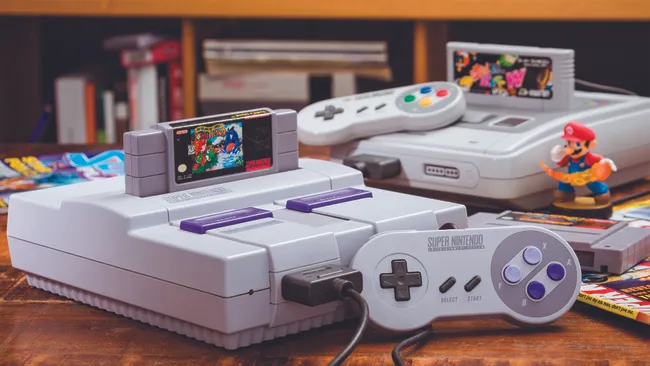Traditionally, the push from players and historians has sparked game preservation efforts into really hot issues. Now, though, the concern from the US Copyright Office to limit game preservation because of fears of “recreational use” has sparked significant debate. These concerns for publishers may raise questions about how to preserve games without infringing upon intellectual property rights.
Importance of Game Preservation
Why should we care about game preservation? For starters, video games have become an unique form of cultural expression. Like movies, books, and music, games are the products of their times. They reflect the technology, the problems of society, and creative styles of their day and offer a digital archive to be explored by later generations to understand our contemporary culture. From the classic arcade to the first console titles, each generation is a piece of our collective heritage.
Beyond history, saving games allows both gamers and researchers to examine the development of gaming and track technological advances in the telling of a story, graphics, and interactivity. If we cannot save, then we will not be able to access these influential titles and, therefore, cannot know how they affect modern game design.
The Role of the US Copyright Office
The US Copyright Office is central to determining how intellectual property laws relate to various media, including video games. They balance the interests of creators, who would like to protect their work, with the interests of the public, which seeks access to these works for educational and preservation purposes. Regarding game preservation, the Copyright Office traditionally has restricted copying and free distribution of preserved games for purposes such as preservation but not commercial ones.
Recent Developments in Game Preservation
In recent months, the gaming world has closely watched as the US Copyright Office examined how digital games could be preserved while respecting copyright laws. Unfortunately, the office recently announced that while they acknowledge the value of game preservation, they cannot permit unrestricted access. This decision was influenced by concerns that preserved games could be accessed recreationally, effectively making them free for anyone to play.
Read :
Win a Free PlayStation 5 Pro – Exclusive Game Rant Giveaway!
Concerns on recreational use by publishers:
Why are publishers worried about the recreational use of preserved games? It primarily comes down to profit and control. If people can freely access preserved games, they may be less likely to buy official re-releases or remasters that bring in revenue. Additionally, publishers often want to control how their games are experienced, and open access could mean unauthorized versions or modifications.
The recreational use concern reflects the broader issue of copyright law’s intersection with digital preservation. Unlike a physical book or movie that can be stored in a library, games require specific hardware and software to be playable. This makes preservation a complex process, and publishers worry that even limited access could become too difficult to regulate.
The Copyright Office’s Response
In response to these concerns, the Copyright Office decided to place restrictions on game preservation efforts. Although they recognize the importance of preserving digital works for educational and historical purposes, they believe publishers’ rights take precedence over unrestricted access to preserved games. This means that while preservationists may archive games, making these archives accessible for casual enjoyment is off the table.
It deeply affects the digital preservationist, for it limits accessibility and use of preserved games. In this respect, the court ruling underlines a tension that has always existed between preservation advocates and copyright holders, with legitimate concerns from both sides: publishers would want to guard their investments and preservationists assert that without reasonable access, the future will have no ways to study or enjoy the works in question.
Impact on Gaming Communities and Researchers
The decision has hit gaming communities and researchers particularly hard. For gaming historians, preserved games are crucial resources that reveal insights into game mechanics, art, and storytelling trends across different periods. With restrictions in place, these historians face significant barriers to conducting thorough research, as access is tightly controlled.
Meanwhile, gaming communities, especially those dedicated to retro gaming, feel the decision limits their ability to share and celebrate classic titles. Many players rely on these archives to relive memories and understand the evolution of gaming. Unfortunately, without preservation access, their connection to gaming’s history could be significantly diminished.
Alternatives to Copyright-Restricted Preservation
Is there a way to preserve games while respecting copyright restrictions? Some preservationists believe that collaborative efforts with publishers could create mutually beneficial solutions. For instance, publishers could work with museums and educational institutions, allowing restricted access for research while protecting their commercial interests.
Another approach involves creating legal emulation frameworks where companies retain control over game access while supporting preservation. Additionally, publishers could offer their own preservation solutions, like digital libraries, where they could monetize older titles without losing control over them.
Conclusion
The US Copyright Office’s recent decision presents a complex challenge for game preservation advocates and publishers alike. Balancing copyright protection with preservation needs isn’t easy, especially in the digital age, where media can be quickly duplicated and shared. However, finding common ground is essential to ensure future generations can study and enjoy gaming history without compromising the rights of creators and publishers. By exploring collaborative solutions, we can hopefully strike a balance that benefits everyone involved.



















